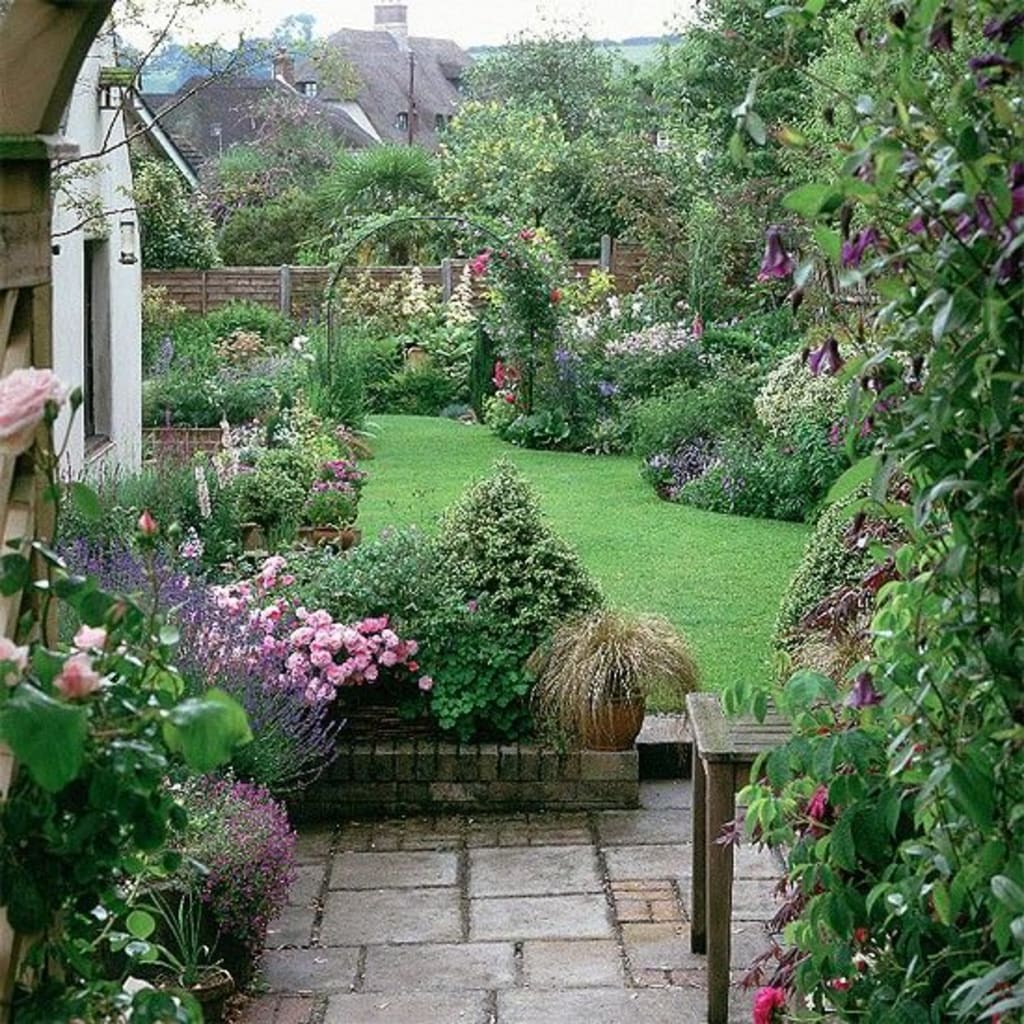London Fog
a story of grief and growth amidst the coronavirus pandemic

She was sixty-eight years old when her husband passed. And at that same time, the whole world was absorbed by his last breath.
Agnes Berry, a name she prided herself in the presence of her marigolds and buttercups, lived alone with hydrangeas hovered over by fog and a proper fitting nuptial name. The unsociable Ms. Berry believed fog was the result of Cardinal sin mainly conceived by her city neighbours—that and the Industrial Revolution. The Church of England made attempts over the years, but it never succeeded her.
It was that “silly virus”, as Agnes referred to it, perhaps by reason to mask her own grief, that struck the world in all but her own back garden. It even made its way into her house to kill her husband, she often notes, which is why most of her time is spent outside protected by old, weathered stone fences with Puppy, her ten-year-old Basset hound who reminds her of her youth.
Agnes had missed her Sunday roasts at noon and garden centre shopping epochs with Puppy for going on seven weeks now, her one ‘get-out’ each week. To make up for it, she ordered plants locally through the internet so as not to miss the earth’s most fertile season, even if it didn’t match her own. Ms. Berry’s Tesco grocery deliveries had been arriving the same way—she called it the ‘doorstep commute’, a true effort for a woman as self-aged as Ms. Berry. Opening and closing the front door once a week, sometimes twice if her deliveries didn’t line up, was the only active exchange between Agnes and greater London for many years. Agnes performed twenty years older than her age since she was forty, leaning on this declaration as “living right”. The topic of her husband’s whereabouts before death were irrelevant to Agnes now, who at present had more pressing matters, like the preservation of her flowers and bushes; blackberries ripe for plucking. “The NHS got it wrong”, she often convinced herself. “It was London that killed Alistair!”
That pesky fog couldn’t touch her resilient plants and gardening secrets, but her husband, sweet, though, kindly a deadbeat, was drawn like a tourist into the, “swishing, dirtying of the Thames”.
Six weeks and four days had passed when Agnes’ neighbour, Julie, paid a visit for the fifteenth time since the outbreak—thirteen since Ms. Berry’s husband died. Agnes never opened the door until this day. It was the same day she realized the fog had significantly dissipated, and her bluebells could breathe fresh air for the first time.
“Hello?” Agnes answered hesitantly, “Thanks for stopping by, but I won’t be needin’ any more pies, love.”
“Oh! No, it’s not a pie!” The young woman stumbled as she rustled through the options. “They are seeds. For your garden—erm, let’s see here...” She carried on running her fingers through the dusty, unoccupied planting pot.
“It looks like we have some... daffodils, daisies, marigolds... oh! Sunflowers! Carnations, chrysanthemums...” She pressed on, unaware of Agnes’ growing displeasure.
“I suppose the garden could do with some roses...” Agnes responded anyway, knowing very well roses were not among the flowers mentioned.
Julie sifted through the pot anxiously. Noticing her distress, Agnes quickly changed course.
“Those are some lovely additions you have... perhaps you would like to come in for a cup of tea while I plant the sunflowers and find a suitable place for the daffodils? I have Earl grey, Yorkshire, and fresh black from the garden—”
“How about I help?” Julie interrupted. “I used to tend a garden with my daughter every Spring as the clocks went forward. We would stand in an imaginary heat and wish for their bloom. Oh-- Look at that! Purple Hydrangeas,” she squealed, cupping the few she had in her hand. “I noticed you had some creeping over the fence, perhaps you might fancy a few more?”
Agnes was weary to smile, though she found she couldn’t help but feel that beautiful and easing sensation of another tending to their garden with similar care. “Your daughter, does she enjoy sunflowers?” Agnes asked, “I find them extravagant, but perhaps not as fitting to our climate. She should pop by after they’ve grown, I have plenty of fresh teas for her choosing.” Agnes exclaimed, surprised by her own unreservedness.
Julie hesitated before replying, “Oh... she would have loved to! My daughter, Gemma, passed away last year just before Christmas. She was off to work in London at her very first job when the accident happened. Unfortunately, ...” Julie collected herself before continuing, “She passed instantly."
Agnes apologized, vowing to make a lovely spot for the sunflowers. “For Gemma,” she said.
Julie smiled, tears welled tightly behind her bottom eyelids. After gardening, they retreated indoors where Ms. Berry prepared a pot of tea. She noticed Julie sat with a pen and paper, adding to what seemed like an existing list. Julie explained how she keeps track of the moments when she feels Gemma’s closest to her; how Agnes’ garden brought one of those moments.
“She always said she wanted me to see more of the world,” Julie said, “So each time I feel her, I make a promise of where I will go next,” Julie takes a moment for tea, “I was diagnosed last April with metastatic breast cancer. It was not at all how I expected to spend what I now know were my last months with Gemma, but our bond is what got me through the initial treatment.”
“Oh, my dear, I’m so sorry to hear that... Are you okay now? May I ask what you put down?”
“Tuscany, if my doctor thought I could make the trip—I couldn’t bear to hear the prognosis.”
Agnes sat back quietly in her chair, following with an empathetic ploy that seemed to raise Julie’s spirits.
“Would you join me?” Julie asked, after excitedly agreeing to Agnes’ suggestion to visit the most beautiful sunflower field in East London in lieu of Tuscany, along with other nearby sites Julie listed like a palm of various flower seeds. Agnes agreed to make a day of it, hoping what she’d heard would exceed Julie’s hopes.
When the time came, a day became five; fifteen. Most Sundays were kept for garden centres with Puppy.
Agnes was surprised by how much she enjoyed London, even the fog, which often went unnoticed. What discomposed her most was not having Puppy there. He was being watched by another neighbor Ms. Berry had recently become acquainted with through Julie. When Agnes hoped to extend a bucket list of her own, including getting in touch with her Welsh roots, Julie became exceedingly ill. With Puppy, Agnes was able to finish their visits in Julie’s and Gemma’s honour.
Julie mentioned Tuscany again on their last outing together, so when Agnes stepped out one morning for a more relaxed going-out and there was no sign of Julie, Agnes knew she had gone to Tuscany to live her final days. Agnes visited the last place on what once felt like an endless list.
After arriving back home on that beaten up bicycle her husband loved, Ms. Berry noticed a thick, grey cloud coming from the chimney on the side of her house, some soot the dewy morning wind had crafted into haze, making its way over her garden. It was then that she realized the fog was never the fault of her London neighbours, the city-goers of her backyard, or their oil-driven machinery, but a mocking-fog from her very own estate; The result of company in her home.
Agnes saw Puppy’s tail going five-speed through the back-garden door. He was joyfully chowing down an evening meal prepared by her neighbour.
It was then that she found the first sunflower in bloom.






Comments (1)
Well done 👏🏽